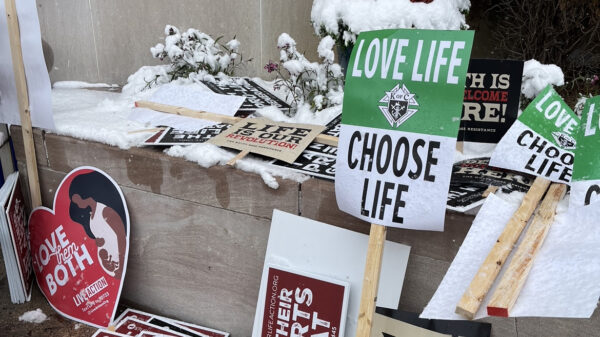Comment Editor Hanna Pham on critical race theory and how pushback against it stems from white racial anxiety.
Alongside the pandemic of the past year and a half came a new wave of activism against police brutality and for African-American rights. The murder of George Floyd in May 2020 sparked new conversations about race in the mainstream. The rise in hate crimes against Asian-Americans reached a new high as a result of inflammatory and racist rhetoric that blamed this demographic for spreading Covid-19. As the United States’ healthcare system continues to battle Covid-19, its society is also battling new variants of national conversations regarding race, racism, and xenophobia.
As physical harm towards people of colour by “vigilante” civilians and figures of authority alike are plastered over television screens and social media, whether willingly or not, discussions about the idea of race in the United States are unavoidable. One of the largest conversations going on right now is about critical race theory and its place in education. Developed in the 1970s and 80s by law professors at Harvard, critical race theory is the analytic framework in which academics can see how the law creates racial disparities and how the effects of historical and institutional racism reverberate today.
Recently, critical race theory has ignited a moral panic among Republican lawmakers. According to South Carolina Representative Ralph Norman, critical race theory is fuelling today’s cultural warfare, as he believes it asserts that white people are inherently racist. Many Republican lawmakers agree with this sentiment and insist that critical race theory divides Americans, between the oppressed and oppressors. Laws claiming to ban critical race theory from public school curriculums have been passed in seven states, and many more states are in the process of advancing similar laws.
What this comes down to is not the patriotic desire to unite the country or to make a more perfect union. It is simply white racial anxiety. The fear that being white will no longer guarantee privilege. The fear that people of colour will take over or be equal. Historically, it is what many systems of oppression like Apartheid and Jim Crow have materialized from.
More recently, white racial anxiety has manifested in the rationale that immigrants are taking away jobs from white Americans or accusations that through affirmative action, young ethnic minorities are stealing places in top universities from white students. White racial anxiety, fear of losing their long-held superior status in society, is what Trump capitalized on to be elected in 2016.
In alignment with pushback against critical race, the theory is conservative calls to action against the teaching of the 1619 Project. The 1619 Project is an initiative created by journalist Hannah Nicole Jones to examine slavery and its consequences as an essential aspect of American history. Ideas such as the United States being built by an imbalance of black bodies and unchecked white power, or that the oppression of coloured people in America has evolved from slavery and taken new, sinister forms throughout history are central to the 1619 Project.
It is an uncomfortable framework to view history, but one that is necessary to understand the interconnectedness of darker skin and lesser socio-economic conditions. Most notably, it contributes to the understanding that America was not built from democracy and freedom, but the fragile rationale of white supremacy. The destruction of the noble American heritage that claims to ensure success to everyone, regardless of skin colour.
There is a looming fear surrounding the call for a better understanding of the racism embedded into American institutions. The conservative pushback against critical race theory is merely a new vessel for this anxiety to be expressed. Critical race theory has been around for decades, but only now, with a heightened awareness of the racism of America’s institutions and calls for a more analytical look at the historical treatment and perceptions of people of colour, does it sufficiently threaten the status quo of white superiority threatened.
















